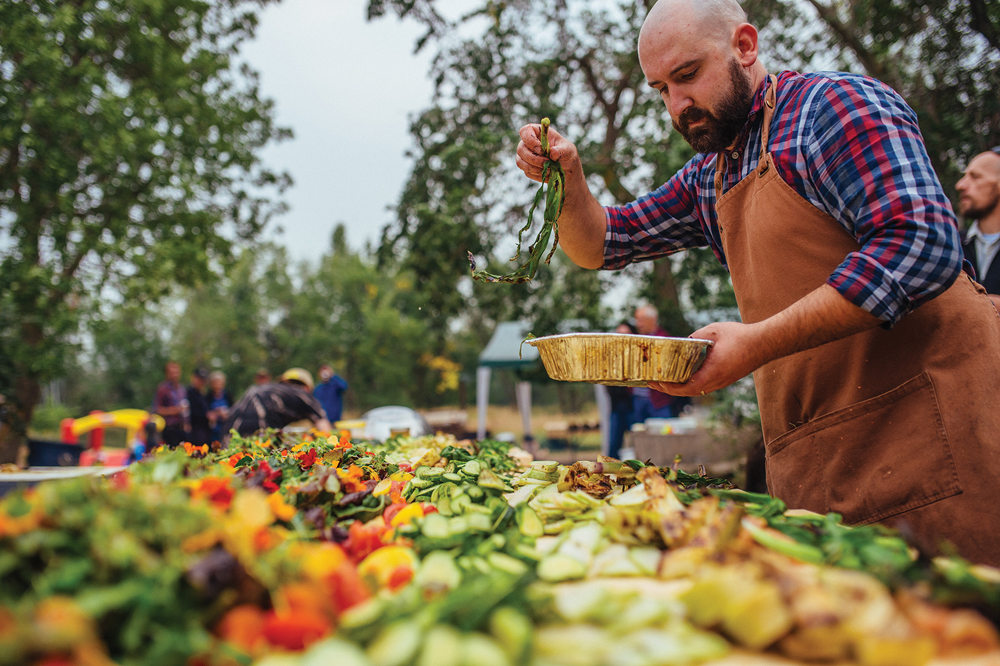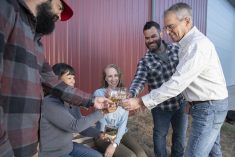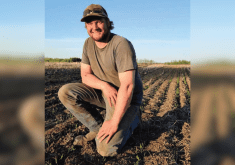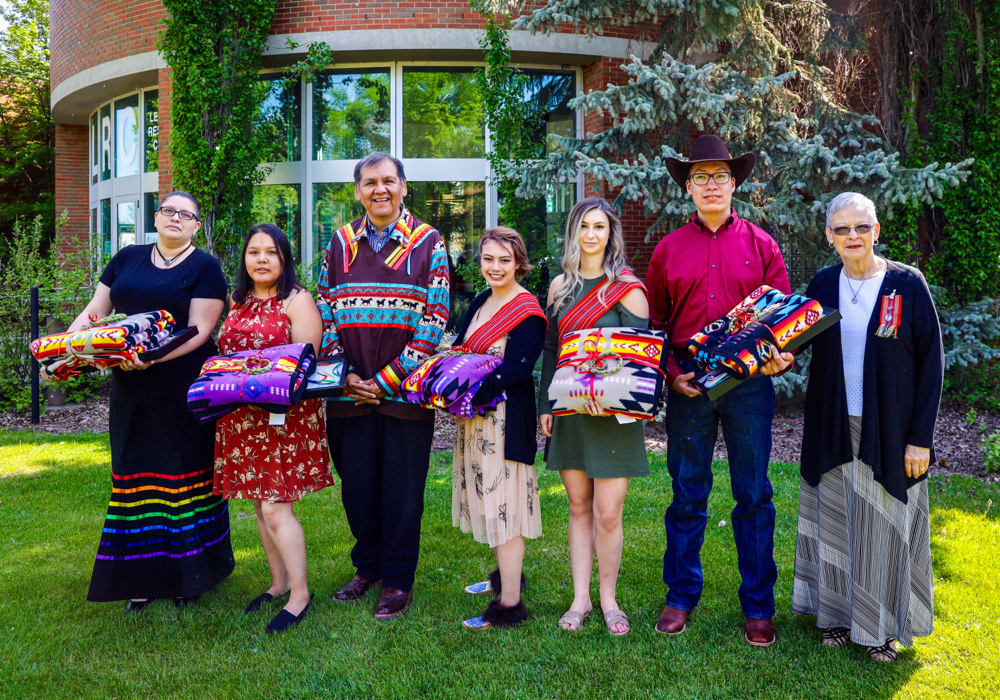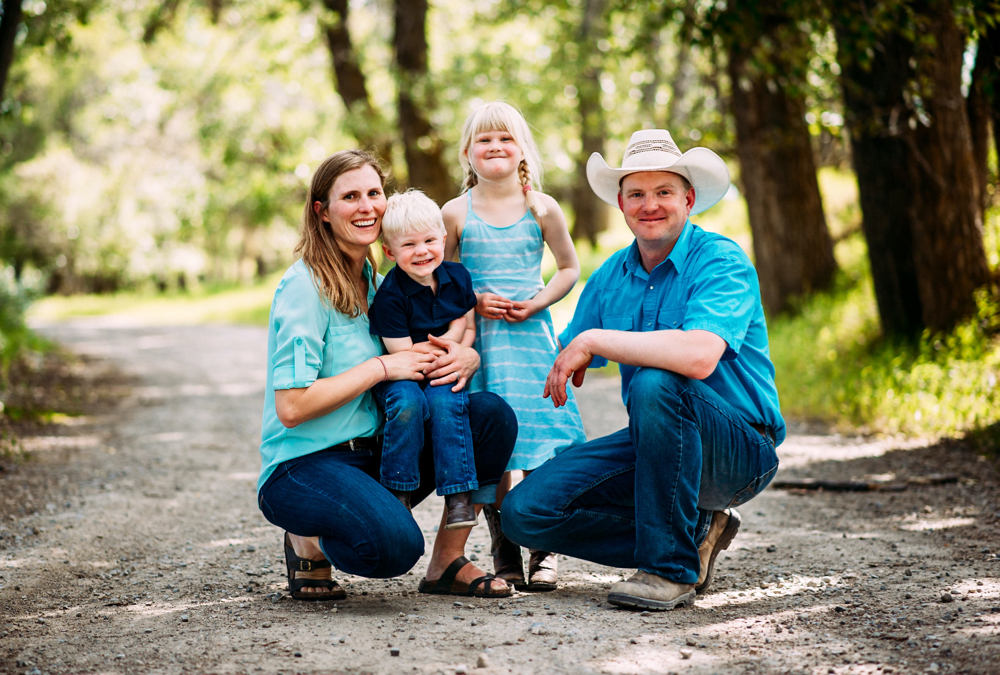Change is an interesting thing. It takes time but with momentum can happen quickly,” said Ian Griebel of Redtail Farms as he reflected on the last few years since he and wife Dana Blume took over his parents’ operation.
Kathleen Charpentier and Richard Griebel started marketing directly from the farm, near Castor, in the mid-’90s and today its main enterprises are grass-fed beef and pork.
But the operation is also a showcase for how diversity and alliances form the foundation of a new type of farm.
Tourism and food events are also part of the mix at Redtail Farms. Ian’s mom also holds yoga classes and health and wellness retreats on the farm. Following holistic management principles, the couple incorporate diversity and give priority to balancing environment, finances and people. They developed a video series based on the four seasons that is posted on their website, redtailfarms.ca.
“I remember my parents having an on-farm event, where they invited people out, did all the cooking themselves and had 100 attendants,” said Griebel.

The first year he and Blume hosted a similar event, they worked hard and only had about 20 people show up.
But that is changing. Recently, as part of Alberta’s Open Farm Days, the couple hosted 120 people in a sold-out affair. The event was part of the Prairie Farm Project, a collaboration with other young farmers from Lazy T Farm and Lady’s Hat Farm. Participants for the dinner also included one of Alberta’s top chefs, Jason Barton-Browne from SAIT; musician Jason Rovensky; Balzac Craft Brewery and popular videographer Kevin Kossowan.
“The Prairie Farm Project is based on the old ways of collaboration among farmers,” said Griebel.
Their tag line is young farmers producing good food and having fun doing it. Partnering and supporting other farms with similar ideas and beliefs — along with sharing and utilizing skills and talents — opens up many more possibilities. Lazy T Farm produces grass-fed beef and chickens while Lady’s Hat Farm has honey, lamb, vegetables and flowers.
Read Also

Farming Smarter receives financial boost from Alberta government for potato research
Farming Smarter near Lethbridge got a boost to its research equipment, thanks to the Alberta government’s increase in funding for research associations.
Redtail Farms also has an alliance with the Chartier restaurant out of Beaumont. Earlier this summer they hosted the entire staff to a farm supper to bring awareness and education about their farm’s products and practices. The collaboration is looking at possibilities for using the entire carcass and value adding by developing specialty products.
Adding potential to that relationship is an on-farm butcher shop that is in the works to be operated by Griebel’s sister Tess and husband Callum Morrison (who hails from Scotland).
“The synergies from all the different relationships are hard to believe,” said Griebel. “It is difficult for farmers to create time to develop relationships.”
But it is an integral part of the marketing for the young couple.
“It is very important to educate our customers,” he said. “Particularly with a grass-finished product that many consumers are not familiar with.”
The couple’s vision extends beyond their farm to the community.
“We would like to help revitalize our smaller communities. The place to start is with food and then move beyond that.”
They want to rebuild and restore the environment on their own operation, but recognize profit is also part of the equation, as are the social and human elements.
This spring, the couple planted 1,000 trees and 2,000 feet of shelterbelt with a wide variety of trees and shrubs, including many fruit producers. The goal is to create “a food forest,” where fruits and other edibles could provide future products the farm could sell.
“The annual food production model is hard to sustain so we are looking at building this around the principles of a forest,” said Griebel.
Incorporating grazing livestock is another component of building a more diverse and sustainable operation, along with inclusion of pollinators and native grasses and flowers.
Coming up with new and different ways of working with others is an important element of the succession process as young farmers are taking over from their parents, he said. (Their succession process was sped up with the passing of Griebel’s father in 2014.)
“We need to pay homage and honour those who came before us,” while balancing that with new ways of doing things,” said Griebel.
“We want to have skin in the game but be able to do our own thing, failing and succeeding.”
Regeneration, responsibility and relationships are the values they base their operation on. And with those the momentum is building.

